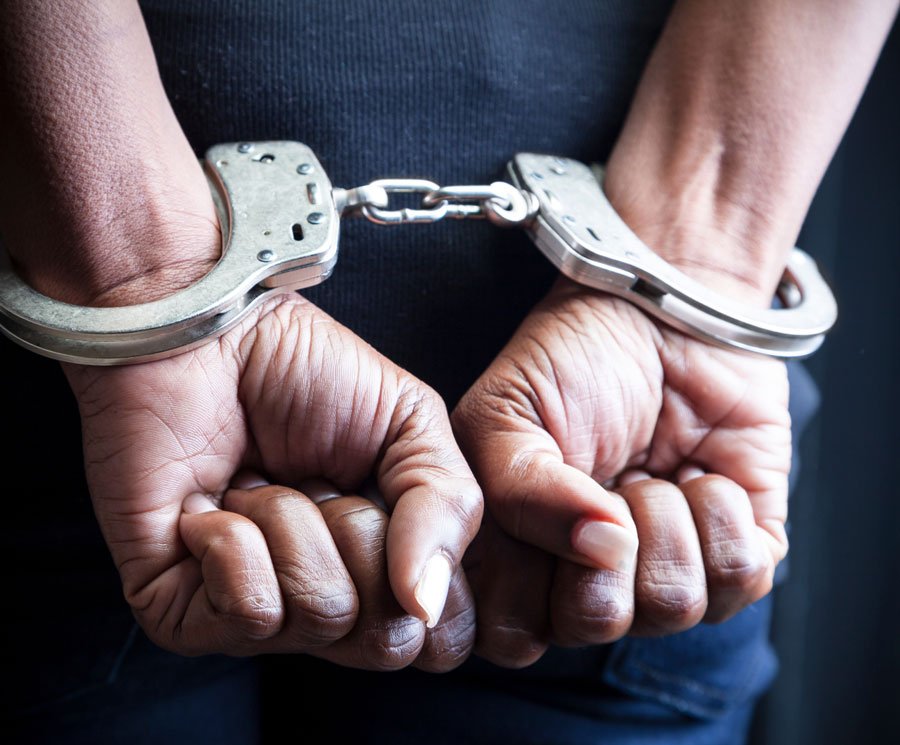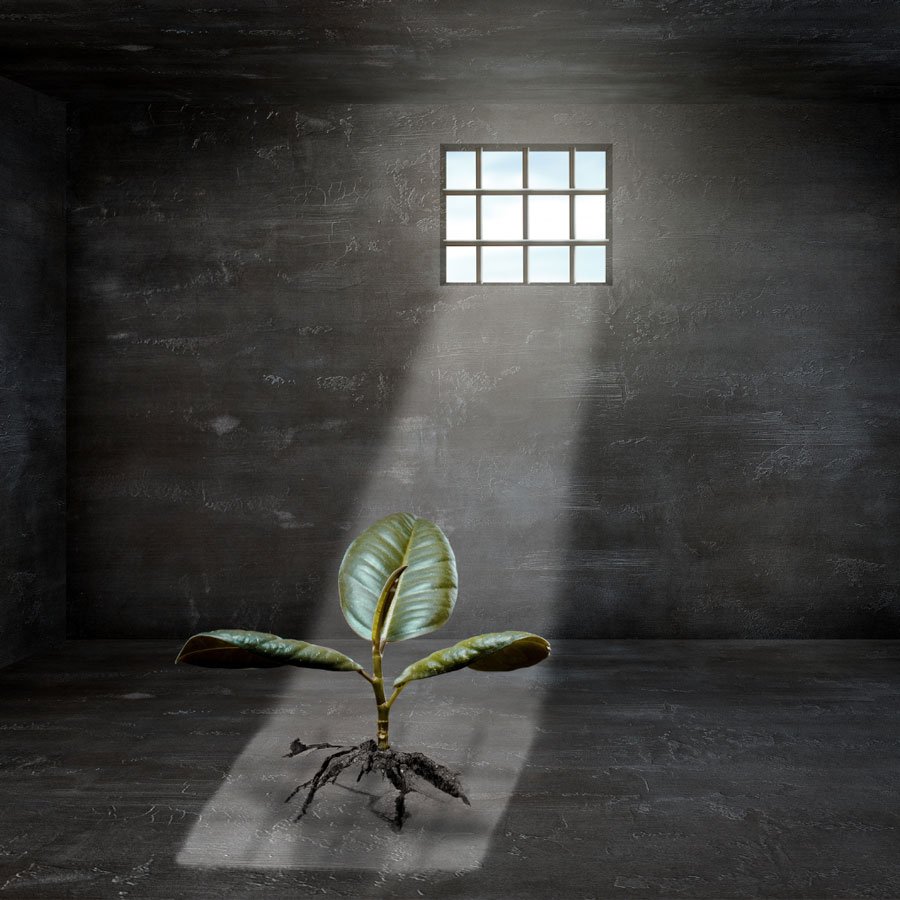My Father Wasn’t Coming. It was the Story of My Life. I’m not using my relationship with my father as an excuse for my crimes. But after 46 years in prison, I’ve had time to reflect.
Editor’s Note: This story was published in partnership with San Quentin News and was written during a writing seminar for incarcerated veterans in April hosted by The War Horse at California’s San Quentin Rehabilitation Center. Tens of thousands of military veterans are incarcerated across the United States, and these stories are intended to shine a light on their unique needs, challenges, and experiences. Learn about the seminar here.
I stood offstage with the Nebraska Wesleyan University choir, awaiting our introduction. The four-year liberal arts college in Nebraska’s state capital of Lincoln was my father’s alma mater; I’d chosen it to make him proud.
I walked on stage with my fellow choristers and looked into the packed audience. I saw my sister right away, but no one else. I immediately knew. My father wasn’t coming.
It was the ongoing story of my life.
Dad was a physician, an internist with a specialty in cardiology. Medical doctors are, by nature, disciplined and able to keep their emotions in check when dealing with patients. They must present information and diagnoses in a direct manner. In my father’s case, at least, he was also unable to produce emotion even when away from the office. It was difficult for him to show compassion—and even love to his family, including me.
Award-Winning Journalism in Your Inbox
I was not raised in a bad home. We were well off within the community, and my mother was as loving as she was able. (She took her own life when I was 17, but that is a different story.) But my father never seemed capable of showing emotions of any kind, except perhaps when it came to his military service.
Dad was immensely proud of having served in the Army during World War II, earning the rank of captain. He tried to stay close to his buddies who’d survived the war, but even this took me years to discover, and he never shared it with me.
Throughout my grade school and high school years, I was an average student who excelled in music and a couple of sports—swimming and golf. But my father never went out of his way to acknowledge when I succeeded in these activities. Although I recall him at all of my sister’s events, Dad rarely made it to mine, including an annual swim meet dedicated to our fathers.
During four years of high school, I swam in 80 meets. Dad made it to one. He had “patients he had to see.” Yet of the seven doctors’ sons who swam on our team, mine was the only one who never regularly showed up.
Maybe, I thought, applying—and getting accepted—to his alma mater would make him proud. If it did, he never said.
I spent two years at Wesleyan before dropping out and enlisting in the Navy. Throughout this time, our conversations were brief and perfunctory, but I always ended them the same way: “I love you, Dad.”
His response was also always the same: “OK.”
At the end of my military commitment, my sister asked what I planned to do next. I told her I decided to leave California and return to our hometown, Fort Dodge, Idaho, and stay with Dad and my new stepmother while I figured that out.
“Steve, they moved to Des Moines.”
He hadn’t told me.

“I’m not using my mixed-up relationship with my father as an excuse for my crimes,” writes Steve Drown, a Navy veteran incarcerated at San Quentin Rehabilitation Center in California. “But after spending the last 46 years locked up, I’ve had a lot of time to reflect.” (Canva stock photo)
I stayed in California, and I started doing things that got me in trouble with the law. This seemed to get Dad’s attention. I’d call him, and he’d pay for an attorney to help me out, although reluctantly. But he never made it out to California, and by now, I didn’t have the money to get home to Iowa.
“I’m not using my mixed-up relationship with my father as an excuse for my crimes,” writes Steve Drown, a Navy veteran incarcerated at San Quentin Rehabilitation Center in California. “But after spending the last 46 years locked up, I’ve had a lot of time to reflect.” (Canva stock photo)
Then, in 1978, I committed the ultimate offense: I stole the life of another human being.
I’m not using my mixed-up relationship with my father as an excuse for my crimes. But after spending the last 46 years locked up, I’ve had a lot of time to reflect.
In order to survive in prison, I found that I had to put on a mask to hide who I really am, or create an alternate persona. Very recently, I wondered if putting on a mask had more to do with my relationship with my dad than surviving in prison.
I am 74 years old, and most of what I’ve written here has come to mind very recently. I do think age and maturity have helped me better understand who I am now and who I was growing up. Did what I perceived as my father’s indifference really influence my decisions throughout life? Or is that just in my mind? Am I trying to find someone to blame?

“I’m 74 years old. … I do think age and maturity have helped me better understand who I am now and who I was growing up,” writes Steve Drown. (Canva stock photo)
I don’t think so. But the thing is, I can’t be sure.
This past spring, I lay on my bunk inside my cell at San Quentin. If I stretched out both arms at the same time, I could touch the walls on either side of me. Two of us share this space. The TV was turned to NCIS—my favorite show. The episode’s storyline was about a father and son at odds with each other. Their only physical contact was a fist bump.
This time, though, they had a conversation, and the father reached up to give his son the fist bump. The son brushed his dad’s hand away and gave him a kiss on the forehead.
I burst into tears.
Two decades into my incarceration, my father developed lung cancer. In 1996, my stepmother told me that he did not have much longer to live. Around that time, I had a parole consideration hearing that resulted in another denial.
Our Journalism Depends on Your Support
Instead of telling my father the truth, I told him that the board found me suitable for parole and set a release date. It seemed to make him happy and comfortable.
Years later, my stepsister told me that Dad called her into his room two days before he died and spoke of me.
“My biggest regret,” she said he told her, “is that I will not see Steve get out of prison. I’ll never be able to tell him that I love him.”
This War Horse reflection was written by Steve Drown, edited by Kristin Davis, and copy-edited by Mitchell Hansen-Dewar. Abbie Bennett wrote the headlines.





Comments are closed.